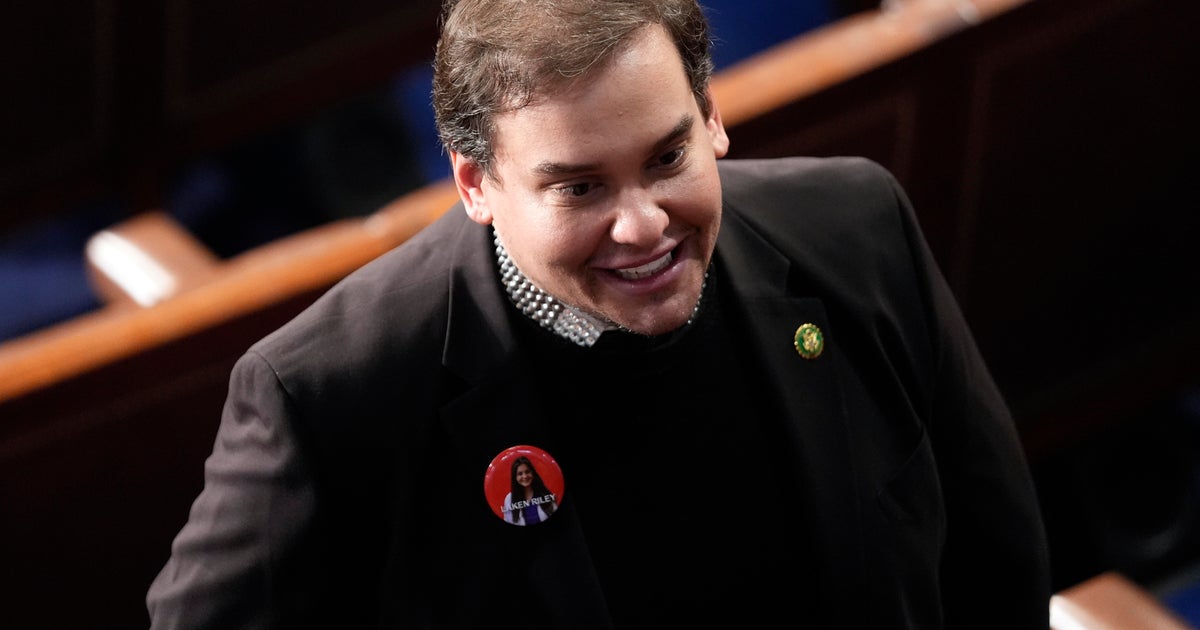Angelina Jolie Has Ovaries, Fallopian Tubes Removed In Hopes Of Reducing Cancer Risk
NEW YORK (CBSNewYork/AP) -- Oscar-winning actress Angelina Jolie revealed Tuesday that she has undergone more preventive surgery, having her ovaries and fallopian tubes removed in hopes of reducing her risk of cancer.
Writing in the New York Times, the filmmaker and philanthropist said that a recent blood test showed a possible early sign of cancer. The news came as a blow to the star, as she has already had a double mastectomy.
"I went through what I imagine thousands of other women have felt,'' she wrote. "I told myself to stay calm, to be strong, and that I had no reason to think I wouldn't live to see my children grow up and to meet my grandchildren.''
Jolie, 39, revealed two years ago that she carries a defective breast cancer gene that puts her at high risk of developing breast and ovarian cancer. Her mother died of ovarian cancer and her maternal grandmother also had ovarian cancer, strong evidence of an inherited, genetic risk that led the actress to have her healthy breasts removed to try to avoid the same fate.
Angelina Jolie Has Ovaries, Fallopian Tubes Removed In Hopes Of Reducing Cancer Risk
Jolie wrote about the challenge making the decision to have the surgery represented.
"It is not easy to make these decisions. But it is possible to take control and tackle head-on any health issue," Jolie wrote. "You can seek advice, learn about the options and make choices that are right for you. Knowledge is power.'
Only a small percentage of women inherit the same faulty gene as Jolie, known as BRCA1, the name stands for breast cancer susceptibility gene. These mutations are most commonly found in women of Eastern European Jewish descent, though other groups, including the Norwegian, Dutch and Icelandic, also have slightly higher rates of these mutations.
The average woman has a 12 percent risk of developing breast cancer sometime during her life. Women who have inherited a faulty BRCA gene are about five times more likely to get breast cancer.
Jolie has been vocal about her mother's battle with cancer and spoke about her in 2011 on "60 Minutes."
"I will never be as good a mother as she was," she said. "I will try my best, but I don't think I could ever be. She was grace incarnate, the most generous, loving — she's better than me."
Jolie said that while having the gene mutation alone was not a reason to resort to surgery -- other medical options were possible -- her family history influenced her decision to have further surgery now.
"A positive BRCA test does not mean a leap to surgery. I have spoken to many doctors, surgeons and naturopaths. There are other options," she said. "There is more than one way to deal with any health issue. The most important thing is to learn about the options and choose what is right for you personally."
The surgery puts a woman in menopause and Jolie wrote she was researching alternative medicine and hormone replacement treatment.
Her courageous decision to announce her double mastectomy publicly was praised as a watershed moment in efforts to persuade women to get breast cancer screening and to raise awareness of the need for early detection. The same sense of mission led her to write about her follow-up care.
"I wanted other women at risk to know about the options,'' she wrote. "I promised to follow up with any information that could be useful, including about my next preventive surgery, the removal of my ovaries and fallopian tubes.''
Sharon Stanley, member of the Long Island chapter of Facing Our Risk of Cancer Empowered, or FORCE, said very few women in her group with the gene have had both surgeries like Jolie.
"Two had decided to have both, two had decided to just do breasts and two have done nothing," she told 1010 WINS' Mona Rivera. "And I've done both."
She called Jolie a hero among women with the BRCA gene for raising awareness once again.
Sarah Roter, 36 -- an ambassador with the breast and ovarian cancer advocacy group Bright Pink -- told CBS2's Valerie Castro reading Jolie's words reminded her of why she opted for the same procedure in December.
"She made a quote about how her kids don't have to say my mom has ovarian cancer, that is why you do it," Roter said. "And so as I feel so fortunate to have my children, they are the reason I did it as well."
Roter said the procedure changes your world.
"You are now catapulting yourself into menopause and all the side effects that go with it. And none of those side effects outweigh ovarian cancer in my mind, and that is why I did it," she said.
Dr. Gary Schwartz, chief of oncology at Columbia University, said 50 percent of women with the mutated gene like Roter will develop ovarian cancer, Castro reported.
He said the preventative surgery Jolie had is the only sure way to avoid it.
"It prevents ovarian cancer completely, and that's a step she elected to take today and she shared that with the American people," Schwartz said.
Roter added that seeing Jolie share her experience is powerful.
"It's a big deal and no matter who you are it's never an easy decision," she said.
Jolie's article makes plain the anguish the results of the new blood tests brought. She said she immediately called her husband, actor Brad Pitt, who flew home from France within hours.
"The beautiful thing about such moments in life is that there is so much clarity,'' she wrote. "You know what you live for and what matters. It is polarizing, and it is peaceful.''
(TM and © Copyright 2015 CBS Radio Inc. and its relevant subsidiaries. CBS RADIO and EYE Logo TM and Copyright 2015 CBS Broadcasting Inc. Used under license. All Rights Reserved. This material may not be published, broadcast, rewritten, or redistributed. The Associated Press contributed to this report.)



